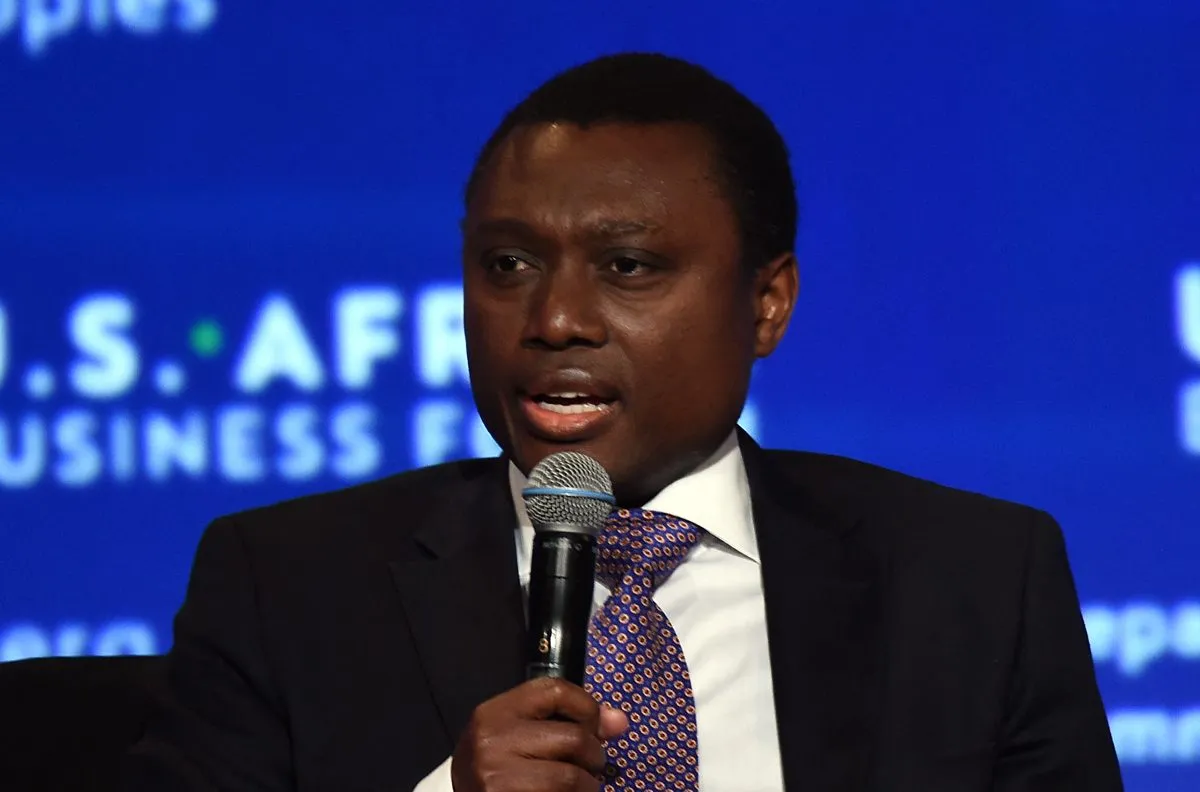Africa’s second largest economy is having something of a turnaround. After years of sluggishness, perhaps best signified by crippling power cuts, the South African economy is whirring back to life. A new government of national unity, led by the African National Congress and the centre right Democratic Alliance, has assured markets of stability and the hope of a prudent economic course. As inflation and interest rates decline, consumers and businesses are starting to spend again.
It is no surprise that Sim Tshabalala, CEO of South Africa’s largest bank, Standard Bank Group, is cheered by positive consumer sentiment in the bank’s home market; when South Africa does well, Standard Bank does well.
“People are buying both durable and non-durable goods. They are buying more clothes and going out to restaurants more often. They’re borrowing to buy fridges and more cars and that’s showing up in our balance sheet and in particular in our home loans book, where we are seeing increasing applications and increasing disbursements,” he says.
Similarly, commercial customers are also spending with the confidence that investments in their businesses will pay off.
Refurbishment resumes
“Our clients are buying more trucks and refurbishing their factories. They are buying more equipment, which is slightly different to what we were seeing prior to the elections, when people were simply maintaining, and in some cases not even maintaining, their plants. Now, they are refurbishing and rebuilding factories and buying new equipment.”
On the corporate side, Tshabalala says, companies are also upping their investments, bolstered by the improvements in the power situation. Companies in logistics, infrastructure and the power sector itself have regained their confidence and are investing.
In the telecommunications sector, he notes, “they’re investing in either purchasing new towers or in some cases selling their towers to raise capital, paying for their licenses because the spectrum has been opened, or investing in fibre for 5G and expansion both in South Africa and in Africa.”
This sense of optimism comes as welcome respite for Tshabalala and the bank, because, as he concedes, 2024 was a difficult year.
“I can tell you that last year was tougher than 2023,” he confides, without being able to disclose more details until official reports are filed for the markets.
“It was more difficult; tough on the interest rate front and tough on the foreign exchange front.”
Economic projections, however, paint a better picture going forward. “South Africa will grow at 2% this year and sub-Saharan Africa as a whole will grow between now and 2030 at about 4%, as the IMF says, which is faster than most regions [Note: the IMF expects South Africa to grow by 1.5% this year]. And then from 2030 onwards Africa will be the fastest-growing region in the world and we will be participating in that growth,” he notes.
Tshabalala points out that as the country’s largest bank, as well as the largest corporate and investment bank on the continent, Standard Bank has relationships with some of the largest corporates across the 20 countries in which it operates.
Infrastructure and critical minerals opportunities
In energy and infrastructure, two of the key sectors that will animate the continental economy, the bank is poised to play a key role. With 600m people on the continent without access to electricity, frantic efforts are under way to bridge the energy gap, which will present new opportunities to Standard Bank and other lenders inside and outside the continent. “There’s a need to build the infrastructure for that,” he says.
Another opportunity that he sees is in the critical minerals that will power the energy transition and with which Africa is well endowed.
“We’ve got copper, cobalt, manganese and the platinum minerals, which are necessary for electric vehicles, battery storage and for the manufacturing of the plants for solar, wind and geothermal power,” he notes. With these resources, Africa, it is hoped, can generate power not just for itself but for the rest of the world.
A linchpin for the global energy transition
While the continent’s vast mineral wealth positions it as a linchpin for the global energy transition, unlocking its potential hinges on robust infrastructure development.
“Africa provides all the minerals necessary for the current state but also for the transition,” Tshabalala reiterates. “But to be able to sell those minerals, they have to be mined.
“You need infrastructure for the mines, roads and rail to get the materials to the ports, and then you need to build the ports.”
Through partnerships with entities such as Mota-Engil, DP World, and others involved in port and rail projects in Lobito, Luanda, Dar es Salaam and Maputo, Standard Bank is backing strategic collaborations to enable the financing, structuring, and construction of these critical systems.
“Because of our relationships with them, we’re able to provide advice, structuring capabilities, and the balance sheet to make this infrastructure a reality,” he says.
With an estimated $3.4 trillion required over the next 20 years for Africa’s infrastructure – including rail, ports, water, sanitation, airports, hospitals, and schools – Tshabalala is cognisant of the urgent need for sustained investment.
Ambitions of this scale must be backed with adequate financing, and Standard Bank is eyeing some of the $145 trillion of assets under management globally. The bank has already shown its ability to leverage diverse capital sources and tap into a wide array of funding opportunities.
“We’ve done club loans with the major European and US banks, raised Panda bonds [in China], and Sukuk bonds out of the Middle East,” Tshabalala says.
“We’ve raised bilateral loans from corporates, issued bonds held by South Africans and international investors, and accessed syndicated and club loans.”
South Africa and the G20
With South Africa presiding over the G20 group of nations in 2025 the country has a great opportunity to place its ambitions on the global desk. Tshabalala himself will serve as the chair of the task force on infrastructure and finance for the B20 – the business side of the G20. While he tries to tamp down expectations – “it’s early days yet” – he is clearly relishing the role and the opportunity. South Africa has already announced that its tenure will be driven by the themes of solidarity, equality and sustainable investment.
Tshabalala offers some more insight into the country’s priorities. “We will want to make sure that the voice of Africa is heard in the context of solidarity, equity, and sustainable investment. We’ll focus heavily on the cost of capital for the African continent. We’ll focus on the financing of the transition in the green economy, and we’ll focus on including more people in the financial system.”
Mobilising more capital will likely require some tweaks to the international financial system, calls for which have been gaining momentum in recent years. “The multilateral system works but needs to be refined to take account of modern realities,” says Tshabalala, joining calls to broaden the mandate of institutions like the World Bank to support not only middle-income countries but also low-income nations.
For Standard Bank itself, the next few years look set to be a transformative period, marked by both challenges and opportunities. With about 50,000 people behind him, Tshabalala has his work cut out for him leading the bank into a bold new future that will be defined by frenetic innovation.
“Artificial intelligence is advancing rapidly, and while we don’t want to be at the bleeding edge, we also can’t afford to lag behind,” he says. From quantum computing to protecting against cyber-attacks and managing third-party risks in cloud computing, Tshabalala says the bank’s focus will be on leveraging technology to enhance productivity and customer experience.
The coming years will thus be defined by a delicate balance of innovation, strategy, and resilience.
Want to continue reading? Subscribe today.
You've read all your free articles for this month! Subscribe now to enjoy full access to our content.
Digital Monthly
£8.00 / month
Receive full unlimited access to our articles, opinions, podcasts and more.
Digital Yearly
£70.00 / year
Our best value offer - save £26 and gain access to all of our digital content for an entire year!

 Sign in with Google
Sign in with Google 



